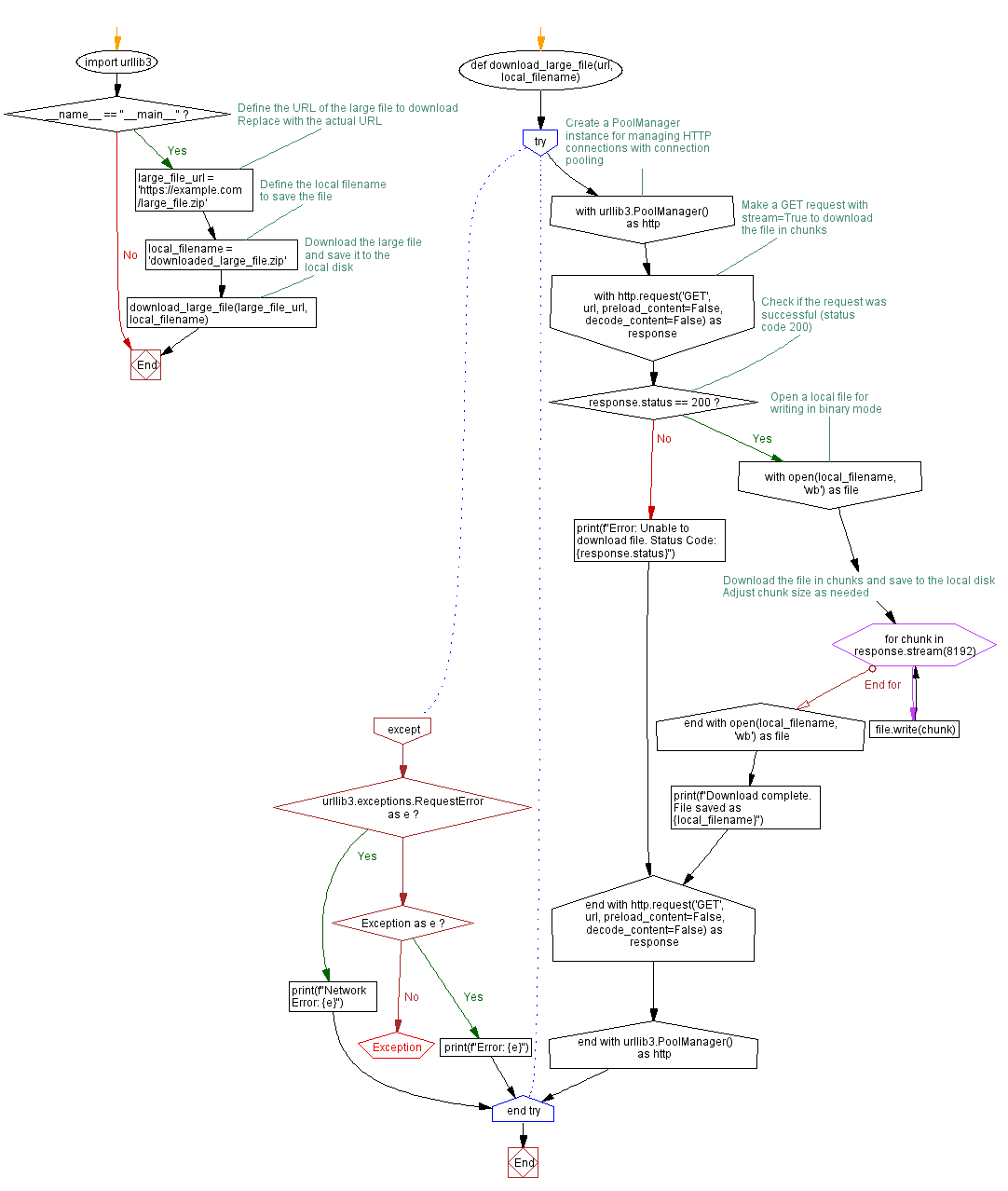Python Large File Download with Stream Parameter example
Write a Python program to download a large file using the stream parameter and save it to the local disk.
Sample Solution:
Python Code :
import urllib3
def download_large_file(url, local_filename):
try:
# Create a PoolManager instance for managing HTTP connections with connection pooling
with urllib3.PoolManager() as http:
# Make a GET request with stream=True to download the file in chunks
with http.request('GET', url, preload_content=False, decode_content=False) as response:
# Check if the request was successful (status code 200)
if response.status == 200:
# Open a local file for writing in binary mode
with open(local_filename, 'wb') as file:
# Download the file in chunks and save to the local disk
for chunk in response.stream(8192): # Adjust chunk size as needed
file.write(chunk)
print(f"Download complete. File saved as {local_filename}")
else:
print(f"Error: Unable to download file. Status Code: {response.status}")
except urllib3.exceptions.RequestError as e:
print(f"Network Error: {e}")
except Exception as e:
print(f"Error: {e}")
if __name__ == "__main__":
# Define the URL of the large file to download
large_file_url = 'https://example.com/large_file.zip' # Replace with the actual URL
# Define the local filename to save the file
local_filename = 'downloaded_large_file.zip'
# Download the large file and save it to the local disk
download_large_file(large_file_url, local_filename)
Sample Output:
Error: Unable to download file. Status Code: 404
Explanation:
Here's a brief explanation of the above Python urllib3 library code:
- Import Library:
- urllib3: Used for handling HTTP requests with connection pooling.
- Define Function:
- download_large_file(url, local_filename): Downloads a large file from the specified URL and saves it to the local disk.
- Make HTTP Request with Stream:
- Use urllib3.PoolManager() to manage HTTP connections.
- Make a GET request with stream=True to download the file in chunks without loading it into memory.
- The preload_content=False and decode_content=False parameters optimize streaming.
- Check Response Status:
- Check if the response status is 200 (OK).
- If successful, open a local file for writing in binary mode.
- Download File in Chunks:
- Iterate over the response stream in chunks and write each chunk to the local file.
- Error Handling:
- Use a try-except block to catch potential "urllib3" network-related exceptions (specifically, urllib3.exceptions.RequestError).
- If a network error occurs, print an appropriate error message.
- Additionally, catch the general "Exception" block to handle unexpected errors and print an error message.
- Run the Function:
- Calls the download_large_file() function with the URL and local filename to perform the file download.
Flowchart:

Python Code Editor :
Have another way to solve this solution? Contribute your code (and comments) through Disqus.
Previous: Python HTTP Request with Network Exception Handling Example.
Next: Constructing URLs with Python urllib3: Query Parameter Encoding Explained.
What is the difficulty level of this exercise?
Test your Programming skills with w3resource's quiz.
